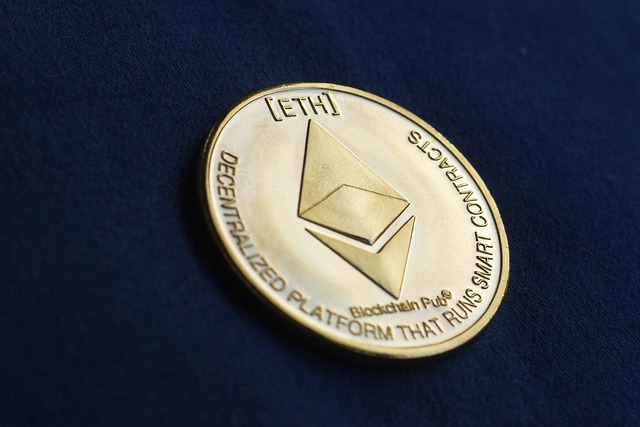Ethereum’s Role in Decentralized Finance: Unlocking a New Era of Financial Inclusion and Efficiency
The rise of blockchain technology has brought about a new wave of innovation in the financial sector. One of the most significant applications of this technology is decentralized finance, or DeFi. Ethereum, as the second-largest cryptocurrency by market capitalization, plays a crucial role in this space. In this article, we will explore Ethereum’s role in DeFi, its benefits, and how it is revolutionizing the way we think about financial inclusion and efficiency.
Decentralized finance refers to financial services that are built on blockchain technology, allowing for peer-to-peer transactions without the need for intermediaries. This approach offers several advantages over traditional centralized financial systems, including increased security, reduced transaction fees, and improved liquidity.
Ethereum’s native smart contract platform enables the creation of decentralized applications (dApps) that can be used to facilitate a wide range of financial services, such as lending, borrowing, trading, and insurance. These dApps are built on top of Ethereum’s blockchain network, which provides a secure, transparent, and tamper-proof ledger for all transactions.
One of the key benefits of DeFi is its ability to provide access to financial services for underbanked populations. In many countries, traditional banking systems are out of reach due to lack of infrastructure or regulatory hurdles. Ethereum’s decentralized platform provides a solution to this problem, allowing individuals to access financial services without the need for intermediaries.
Another significant advantage of DeFi is its ability to increase efficiency and reduce costs. Traditional financial institutions often charge high fees for transactions, which can be a barrier to entry for smaller players or those with limited capital. Ethereum’s dApps, on the other hand, operate on a decentralized network, eliminating the need for intermediaries and reducing transaction costs.
One notable example of DeFi in action is the lending platform Compound. Compound allows users to lend and borrow cryptocurrencies without the need for intermediaries, providing interest rates that are significantly lower than traditional lending platforms.
Another significant player in the DeFi space is Aave. Aave provides a decentralized lending platform that allows users to lend and borrow cryptocurrencies at competitive interest rates. The platform is built on top of Ethereum’s blockchain network and operates using smart contracts, ensuring security and transparency for all transactions.
Ethereum’s role in DeFi extends beyond lending and borrowing platforms. The platform also supports the development of decentralized exchanges (DEXs), which allow users to trade cryptocurrencies without the need for intermediaries. DEXs operate on a decentralized network, providing secure and transparent trades for all participants.
One notable example of a DEX is Uniswap. Uniswap is a decentralized exchange that allows users to trade cryptocurrencies in an open-source and community-driven manner. The platform operates using smart contracts, ensuring security and transparency for all transactions.
Ethereum’s support for DeFi also extends to the development of decentralized insurance platforms. These platforms provide coverage for users against various risks, such as price volatility or market downturns. Decentralized insurance platforms operate on a decentralized network, providing secure and transparent protection for all participants.
One notable example of a decentralized insurance platform is Nexus Mutual. Nexus Mutual provides a decentralized insurance platform that allows users to purchase insurance policies in a peer-to-peer manner. The platform operates using smart contracts, ensuring security and transparency for all transactions.
In conclusion, Ethereum plays a crucial role in the development and growth of DeFi. Its native smart contract platform enables the creation of decentralized applications that can be used to facilitate a wide range of financial services. From lending and borrowing platforms to decentralized exchanges and insurance platforms, Ethereum’s support for DeFi is revolutionizing the way we think about financial inclusion and efficiency.
As the DeFi space continues to evolve, it is likely that Ethereum will play an increasingly important role in its development and growth. With its native smart contract platform and growing ecosystem of decentralized applications, Ethereum is well-positioned to become a leading player in the DeFi space.
tags:
decentralized finance
ethereum
blockchain technology
